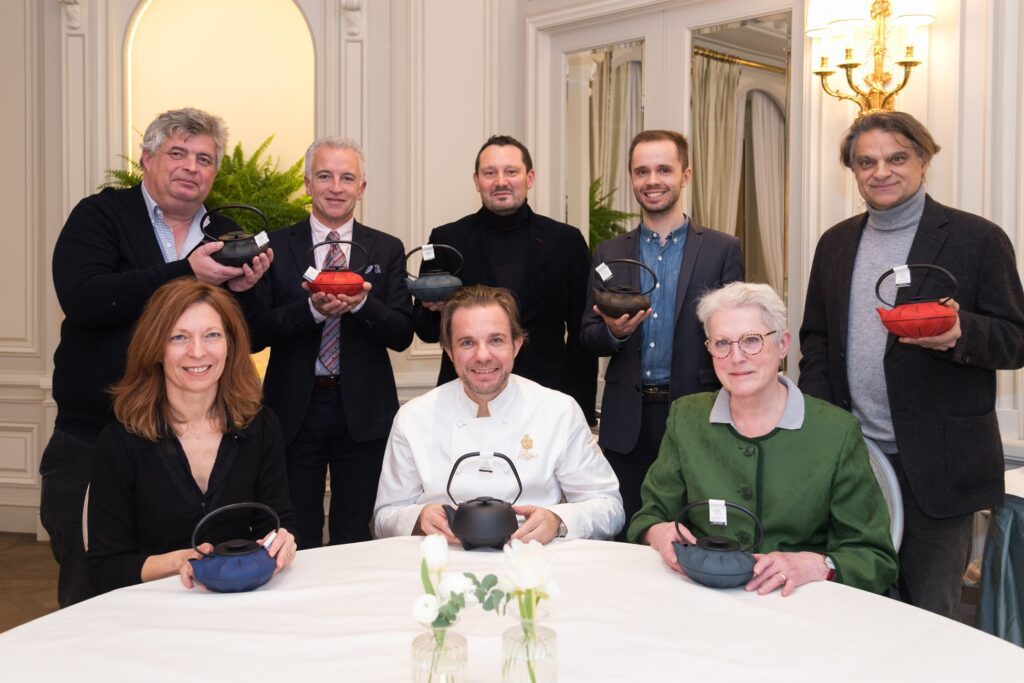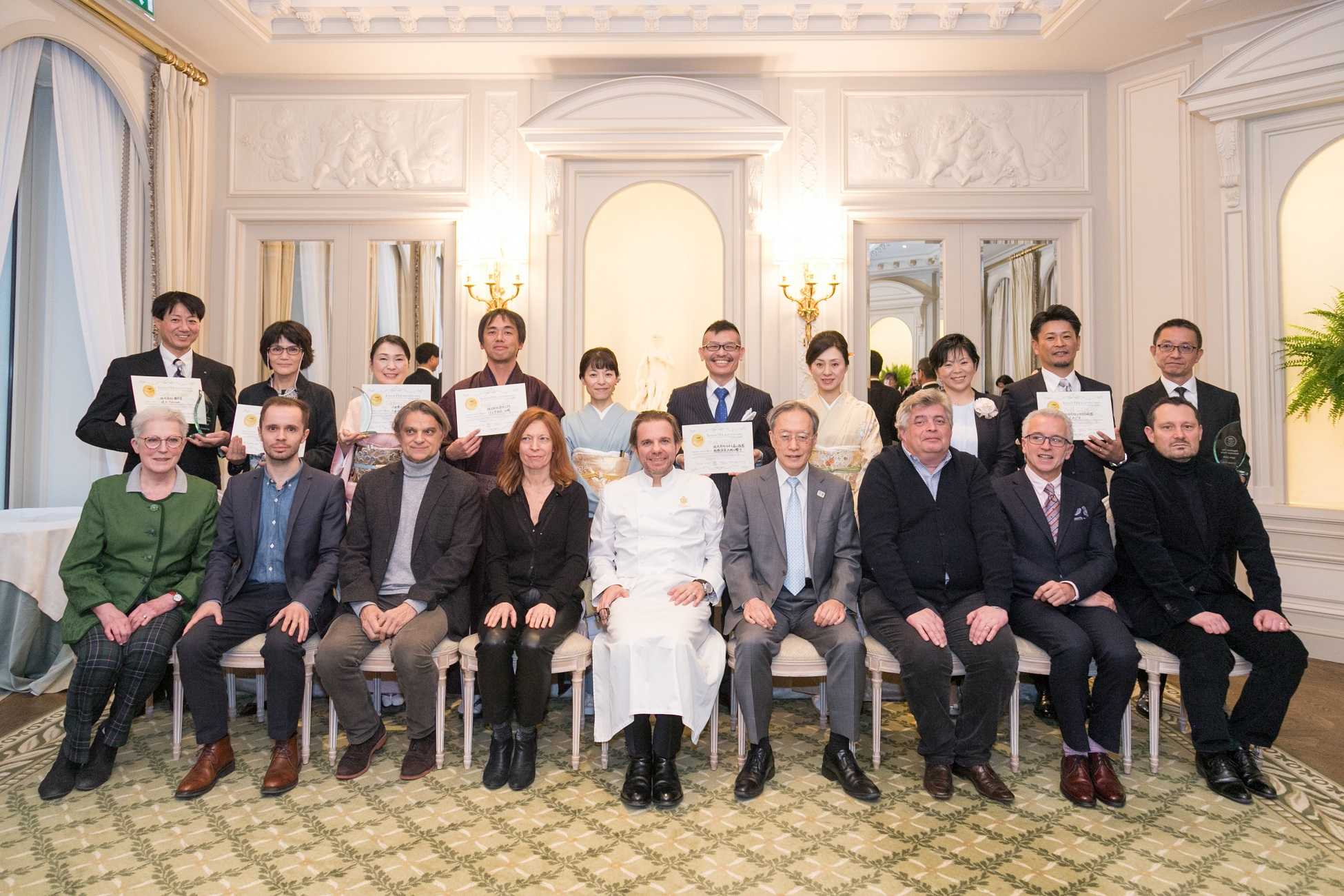Share your coffee stories with us by writing to info@comunicaffe.com.
PARIS, France – Japanese Gourmet Tea Selection France awarded the winners in Paris on January 27th. The award ceremony took place at Hotel Ritz, with Ambassador Junichi Ihara congratulating the gold medal winning proud tea producers. Their 13 teas had been selected as the best amongst 129 samples submitted, after going through several jury and tasting sessions.
Ambassador Ihara recalled the importance of the very ancient Japanese tea traditions and culture; he underlined the outstanding quality of the Japanese premium teas and the government’s support to promote these cups in European markets with high culinary expectations.
A very ancient tea producing country with a world -famous tea ceremonial, originating from the Buddhist monks’ and the Shogun’s court ways, Japan ranks as the world’s number 10 tea producer today, with a tea production of 79,000 metric tons in 2018.
Taking into account imports and exports the home market consumption in 2018 amounted to 105,300 mt. With limited land area and great thirst for good cups, Japan’s tea market is under pressure with the world’s highest labor costs, urbanization encroaching arable soils and the aging of the rural population, who detain the know -how for making fine teas.
Awareness is growing about the need to preserve this highly reputed heritage production and also to attract more knowledgeable consumers in Western countries. Therefore, and in order to enhance exports of gourmet teas from Japan, new promotion strategies now focus directly on consumer perception and cup appraisal, as well as pairing gourmet food with gourmet teas. A first Japanese Gourmet Tea Selection had taken place in Berlin, Germany in 2018, and the Paris, France Selection had been launched in autumn 2019.
Recently a new trend has been building up the single origin/ estate tea concept, which has been prevailing in China since immemorial times, thus diversifying and revisiting the standing Japanese practices of blending most of the teas at whole sale level.
This has generated an innovative and fully transparent labelling model, stating the growing area, the process/type of tea, the date of the leaf picking and the botanical cultivar. Such mostly small volume and premium quality harvests have been designed with a main focus on the export market.
The Paris Gourmet Tea Selection promotion operation has been set up by Euro Japan Crossing, www.ejcrossing.com, https://japaneseteaselection-paris.com/professionel in partnership with Iwachu, the leading producer of cast iron cooking ware and also tea pots, which are called tetsubin. The company was created in 1902 in the Tohoku region in the North West of Honshu Island, with major iron mining sites.
www.iwachu.co.jp
The tea tastings were run with the assistance of the Japan Green Tea Ambassador in France, Ms. Misako Lelong- Nohsoh info@thevertjaponais.fr
Having greatly suffered from the Fukushima cataclysm ten years ago, Iwachu has teamed up with neighboring Kanto’s tea producers to better attract foreign and home consumers. Indeed, the important development of the tea growing areas located towards the Southern regions of Shizuoka and Kagoshima has gradually led to the oblivion of the previously famous Kanto teas until a few years ago.

Today the traditional local cultivars have been revived and offer a choice of savory green, intensely flavorful black and also pan -fried teas. Several highly motivated and well- trained producers have taken up some of the forgotten plantations and have started to launch single estate /origin specific cultivar cups. This new and high added value approach based on regional premium origin teas is also applied by tea companies from other terroir tea regions, like Miyazaki, Fukuoka, Yame and Nagasaki for example.
To note that the output of such premium leaf teas remains limited, which increases their attractiveness as “must have” and stimulates demand. These new faces and new trends have become instrumental for enhancing the premium profile and specialty tea image of Japanese teas. In addition, they also pave the way towards more organic production and make a valuable contribution for increased exports to the Western markets.
The thirteen Gold Awards were shared out between 4 Matcha from Kyoto,Uji, 1 Gyokuro from Fukuoka,Yame, 5 Sencha from Myazaki, Kagoshima and Saitama, 1 Bihakko cha from Saitama and 2 Tamaryokucha from Nagasaki and Saitama. A truly memorable event.















